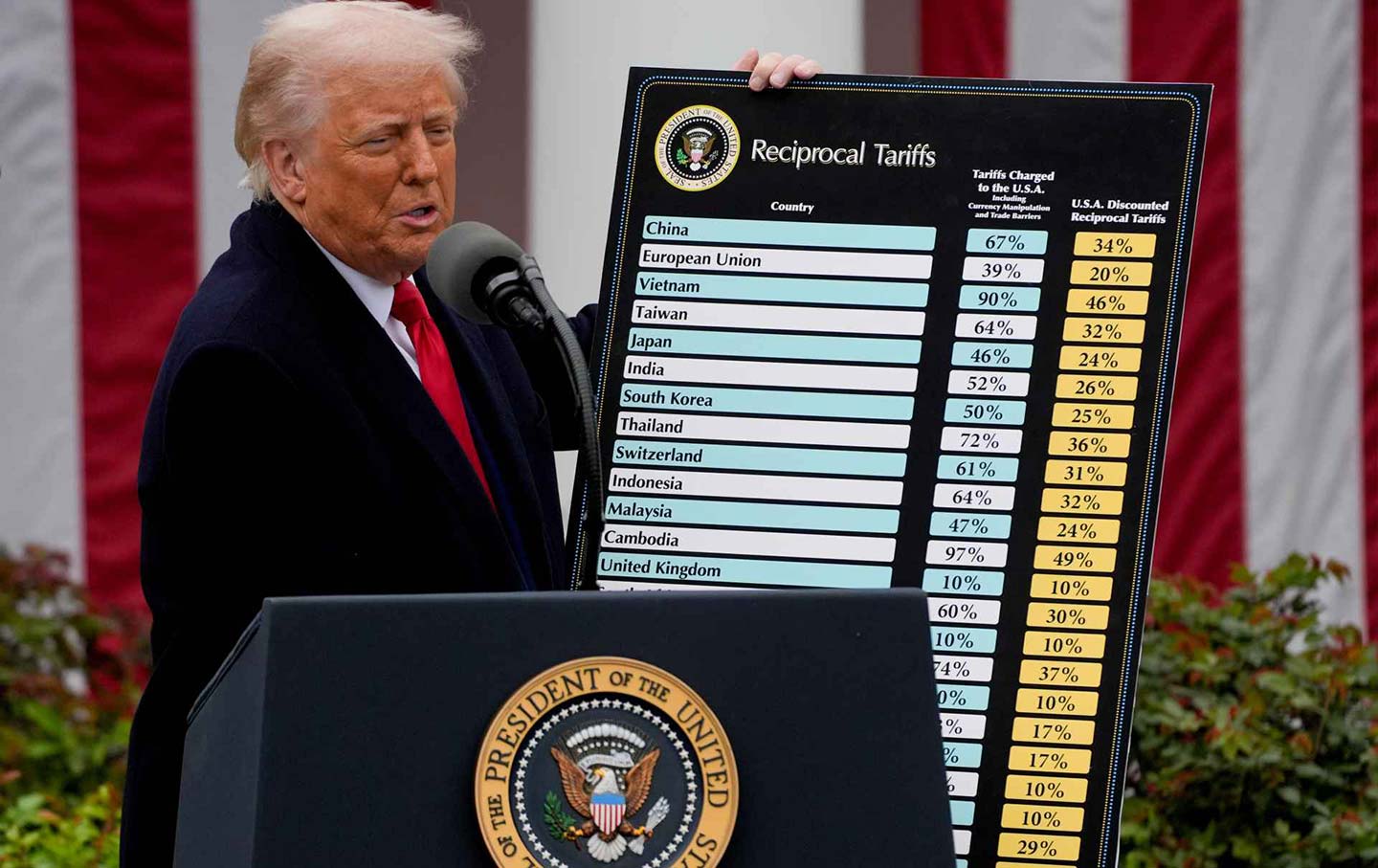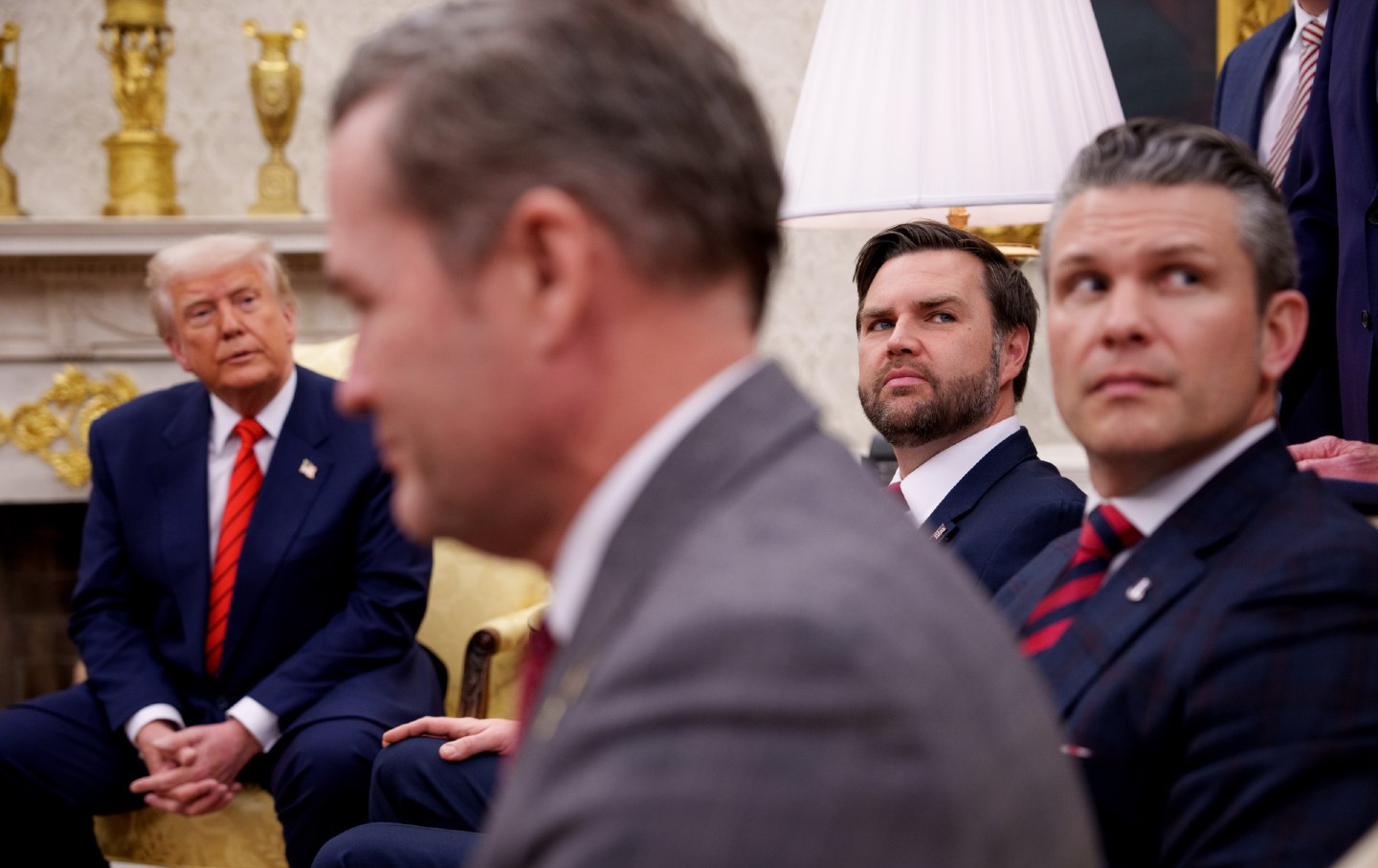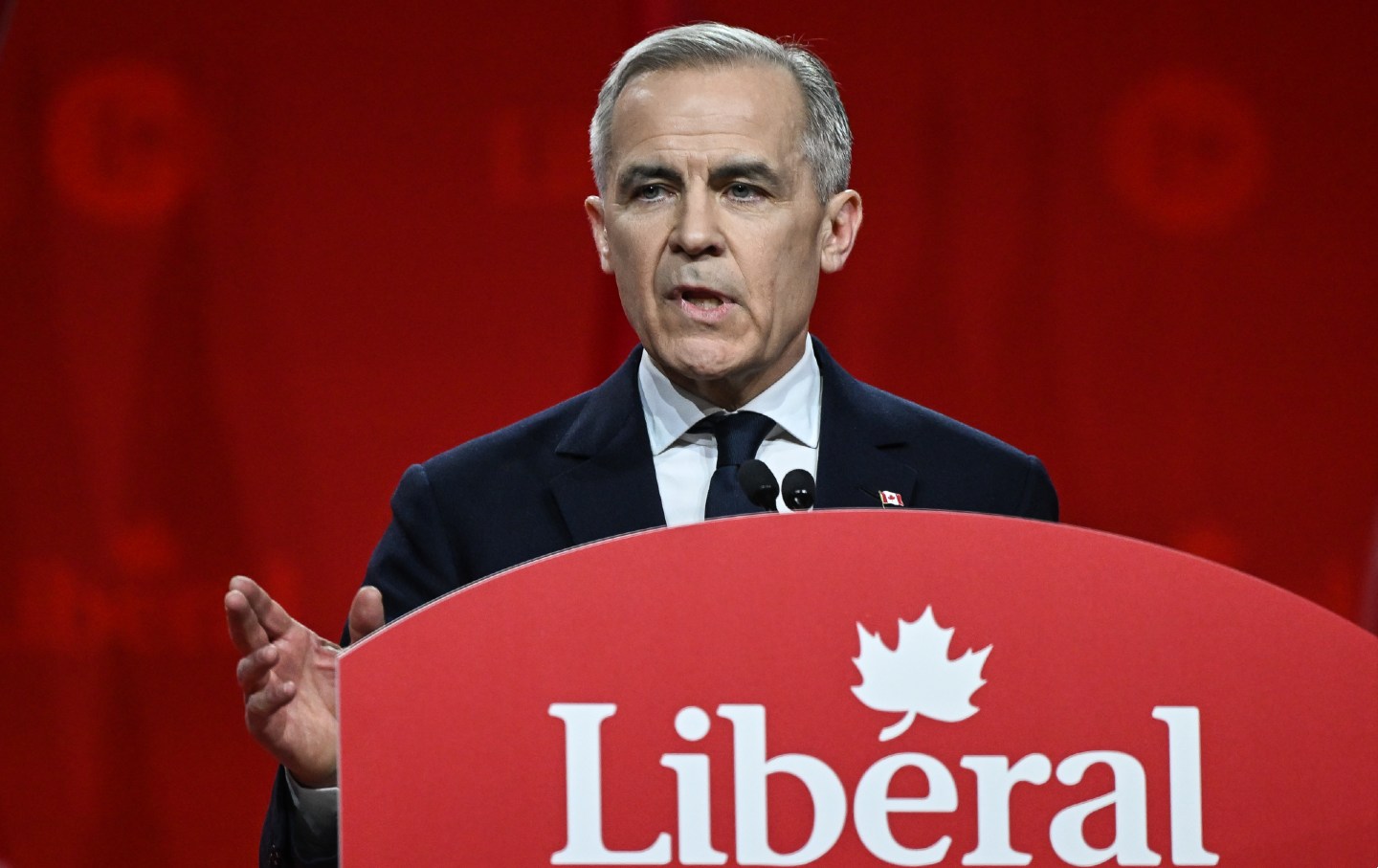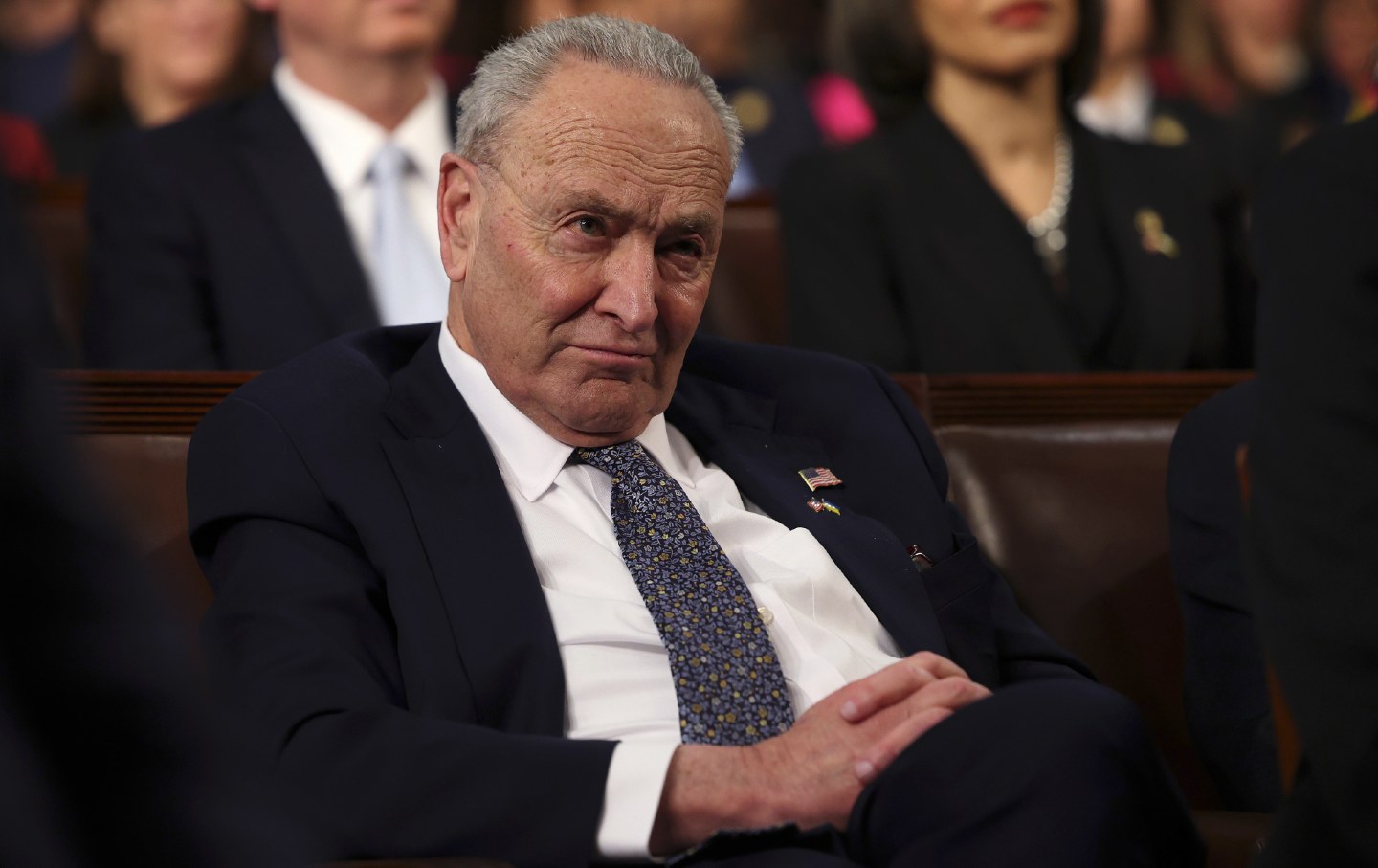How Biden’s Foreign Policy Destroyed His Presidency
Biden’s domestic agenda was the most progressive of any president since Lyndon Johnson. But it was entwined with a foreign policy that leaves his legacy drowned in blood.

On July 13, just eight days before he announced the end of his presidential reelection bid, a besieged and testy Joe Biden defended himself from critics within his own party by boasting about his mastery of foreign policy. During Biden’s agitated Zoom call with moderate congressional Democrats, Colorado Representative Jason Crow—who as it happens voted with the president 100 percent of the time—cautioned him that voters were questioning his foreign policy leadership. Biden responded angrily: “Name me a foreign leader who thinks I’m not the most effective leader in the world on foreign policy. Tell me! Tell me who the hell that is! Tell me who put NATO back together! Tell me who enlarged NATO, tell me who did the Pacific Basin!… We’ve got Korea and Japan working together, I put AUKUS together, anyway!… Find me a world leader who’s an ally of ours who doesn’t think I’m the most respected person they’ve ever—”
“It’s not breaking through, Mr. President, to our voters,” Crow interjected respectfully.
“You oughta talk about it!” Biden fired back, his bitterness intensifying. “On national security, nobody has been a better president than I’ve been. Name me one. Name me one! So I don’t want to hear that crap!”
This scene distills, in brief, the nausea-inducing pathos of Biden’s presidency. Fending off an uprising inside his own party, Biden sounded less like a confident leader than a raving Captain Ahab (from Moby-Dick) or Captain Queeg (from The Caine Mutiny)—an unstable commander who needed to be removed from power immediately.
Biden’s self-celebratory view wasn’t widely shared outside the White House: He had low approval ratings in general and particularly for his handling of foreign policy. Even among liberals and leftists who might otherwise give high marks to Biden’s domestic policy, there has been widespread criticism of his militarism, especially his near-unqualified support for Israel’s ferocious attacks on Palestinian civilians.
For his allies among liberals and the left, Biden is a figure not just of pathos but of genuine tragedy. It’s hard to come to any easy judgment, because Biden’s ambitious domestic agenda was inextricable from his foreign policy. Both sprang from the same holistic vision of fusing together military spending and domestic policy to return America to the strength it enjoyed during its Cold War peak of global dominance. Biden was not an enemy like Donald Trump who could be easily disavowed, but a more complexly dangerous figure, a semi-friend who entangled us in his folly.
But was Biden’s team right in thinking that its foreign and domestic policies were inseparable? Or is there a way to build on Biden’s domestic achievements while leaving behind his discredited foreign policy?

Biden’s conception of himself as a foreign policy giant—a modern Dean Acheson or Henry Kissinger—was echoed by his staff. Just two days before the exchange with Crow, Andrew Bates, the senior deputy press secretary and deputy assistant to the president, posted on X: “To answer the question on everyone’s minds: No, Joe Biden does not have a doctorate in foreign affairs. He’s just that fucking good.”
Bates’s exaltation of Biden was risible at the time and has become even more ludicrous in the wake of press reports documenting that Biden was mentally diminished for much (if not all) of his presidency. A devastating December 19 article in The Wall Street Journal makes clear that Biden was surrounded by a Praetorian Guard of enablers and deceivers who propped up the image of the president as still in control even as they covertly ran the Oval Office. According to the Journal, “Senior advisers were often put into roles that some administration officials and lawmakers thought Biden should occupy, with people such as National Security Adviser Jake Sullivan…frequently in the position of being go-betweens for the president.” American foreign policy, it seems, was effectively run by a behind-the-scenes triumvirate of ultra-hawks made up of Sullivan, Secretary of State Antony Blinken, and adviser Brett McGurk.
Biden’s central belief was that his foreign policy was one of his greatest strengths, when in fact it was his Achilles’ heel. In the final weeks of the race, Trump—whose internal polling showed that undecided voters didn’t like the president’s Middle East policy—styled himself as an anti-war candidate who would halt the Biden-Harris administration’s rush to World War III. It was a cynical message, but one that resonated with voters weary of the unending wars that defined Biden’s term in office.
The unpopularity of Biden’s foreign policy can be seen in a Cato Institute poll done on the cusp of the election in three crucial swing states (Wisconsin, Pennsylvania, and Michigan), which showed that majorities of voters “believed the US is ‘too involved’ in world affairs and global conflicts (WI: 53%, PA: 50%, MI: 52%); say US foreign policy does not put American interests first (WI: 62%, PA: 61%, MI: 60%); and think it’s likely that the US is ‘closely’ approaching World War III (WI: 59%, PA: 51%, MI: 54%).”
Biden’s approval numbers first took a steep dive after the botched withdrawal of US forces from Afghanistan, a justified policy that was marred by bad execution. As the Journal reports, “Some legislative leaders had a hard time getting the president’s ear at key moments, including ahead of the U.S.’s disastrous pullout from Afghanistan.” Biden and his tight inner circle ignored credible analysis that the government of Afghan President Ashraf Ghani was likely to collapse quickly in the wake of an American pullout. With few plans prepared for this contingency, the Biden White House instead nursed delusions that there would be a “decent interval” of months or even years between the US withdrawal and Afghanistan’s unraveling.
While Biden took pride in his support for Ukraine after the Russian invasion, there is evidence that his administration undermined crucial negotiations between the two countries in the spring of 2022—a fateful decision that extended the fighting even as the war devastated Ukraine’s landscape and population. The likely deal Ukraine will negotiate with Russia under Trump will be far worse than anything Ukraine could have achieved if Washington hadn’t blocked negotiations in 2022.
In the Middle East, the killing fields of Gaza will be remembered as one of the great crimes of the era. Israel’s war has already been classified as a genocide by numerous scholars of war crimes as well as by mainstream institutions such as the International Criminal Court, the International Court of Justice, and Amnesty International. Israel’s indiscriminate killing of Palestinian civilians could not have happened on the scale it has without American aid, and Amnesty International (among other human rights organizations) has convincingly argued that this military aid was in violation of both international and US law. By refusing to follow his country’s own laws, Biden himself is a partner to these war crimes. Like Lady Macbeth, his hands will be forever stained with blood.
Popular
“swipe left below to view more authors”Swipe →Biden’s fetishization of alliances such as NATO and AUKUS was based on the dubious idea that the United States has an overriding interest in a renewed great-power competition with both Russia and China—a shift from the approach, which prevailed from the Nixon administration through the Obama presidency, of trying to assimilate China into global capitalism. Like Lyndon Johnson, Biden was a towering domestic president undone by a hawkish foreign policy. For both LBJ and Biden, domestic and foreign policy went hand in hand: As liberal hawks, they practiced military Keynesianism, the policy (embraced by Democrats and Republicans alike) of using military spending (which enjoys a unique protection from accusations of socialism) as a de facto industrial policy and economic stimulus. In this holistic vision, the home front must be reformed to make the empire safe—and it is the strength of the empire that allows domestic life to flourish.

Biden’s identity as a liberal hawk has roots in both his own political history and in the response his forward-looking foreign policy advisers, notably Jake Sullivan, developed to Trumpism.
Although Biden entered the Senate in 1973 as a critic of the Vietnam War, he drifted to the right on foreign policy because of his relationship with Washington Senator Henry “Scoop” Jackson. Cold War liberalism incarnate, Jackson was a fierce hawk who fought against Richard Nixon’s policy of détente with the Soviet Union and was an unwavering supporter of Israel, while at the same time backing a robust welfare state and strong labor unions. In a 1983 eulogy on the Senate floor, Biden said that “Jackson changed a major part of my political life” by teaching him the importance of Israel to American foreign policy.
As vice president under Barack Obama, however, Biden seemed to be aware that the time of Scoop Jackson had passed. Though he remained pro-Israel, Biden cautioned the Israeli Prime Minister Benjamin Netanyahu: “Bibi, I gotta tell you, I’m coming under a lot of pressure back here. This is not Scoop Jackson’s Democratic Party.”
But the rise of Trump in 2016 persuaded Biden—as well as staffers like Sullivan—that there might be value in returning to Jackson–style liberal hawkery. Trump had won in part because he pried away white working-class voters upset about how trade deals had moved good manufacturing jobs to countries like China. Trump’s revival of protectionism—part of his genuine economic pitch to blue-collar voters—discredited the long epoch of neoliberal ascendancy in the Democratic Party that stretched from Jimmy Carter to Obama.
Biden and his team saw Trump as both an authoritarian threat domestically and part of a global resurgence of autocracy seen in nations like Russia and Hungary (whose leaders Trump often praised and seemed to emulate) as well as in the growing power of China. To fight Trumpism, they thought, something like a revived Cold War liberalism was needed: a robust foreign policy that eschewed Trump’s America First rhetoric and reasserted American leadership of alliances such as NATO (whose members Trump had disdained as freeloaders) and AUKUS.
During the period of triumphant neoliberalism, from 1991 to 2016, the United States had sought to integrate China into the American-led international order. Under the new dispensation, that policy would be replaced by an open pursuit of great-power competition with both Russia and China—a hubristic vision that recalled the American bid for global supremacy during the peak of the Cold War in the 1950s and ’60s. Abandoning neoliberal trade policies, the United States would treat China as a competitor to be fought with counter-alliances and tariffs. The break with neoliberalism would include large-scale infrastructure spending to create manufacturing jobs that would revive working- and middle-class prosperity, bringing back the broadly shared wealth of mid-century America. A newly thriving middle class would then dampen the polarization and alienation that fueled Trumpism. Meanwhile, new infrastructure spending would focus on the transition to clean energy—addressing the climate crisis and offering the United States a chance to modernize its economy (and compete with China). With this fusion of the warfare state and the welfare state, democracy could be saved both at home and abroad. Scoop Jackson could look down upon his former protégé and smile.
The most cogent exposition of Biden’s new military Keynesianism was a speech on “a foreign policy for the middle class” that Jake Sullivan delivered at the Brookings Institution on April 27, 2023. In that speech, Sullivan insisted on the importance of “President Biden’s core commitment—indeed…his daily direction to us—to more deeply integrate domestic policy and foreign policy.”
Sullivan crafted an impressively cohesive foreign policy vision, one that linked a host of genuine domestic and international problems and seemed to offer a few core policies to address them while building a durable political coalition that could counter Trumpism. In practice, however, these ideas led to disaster.
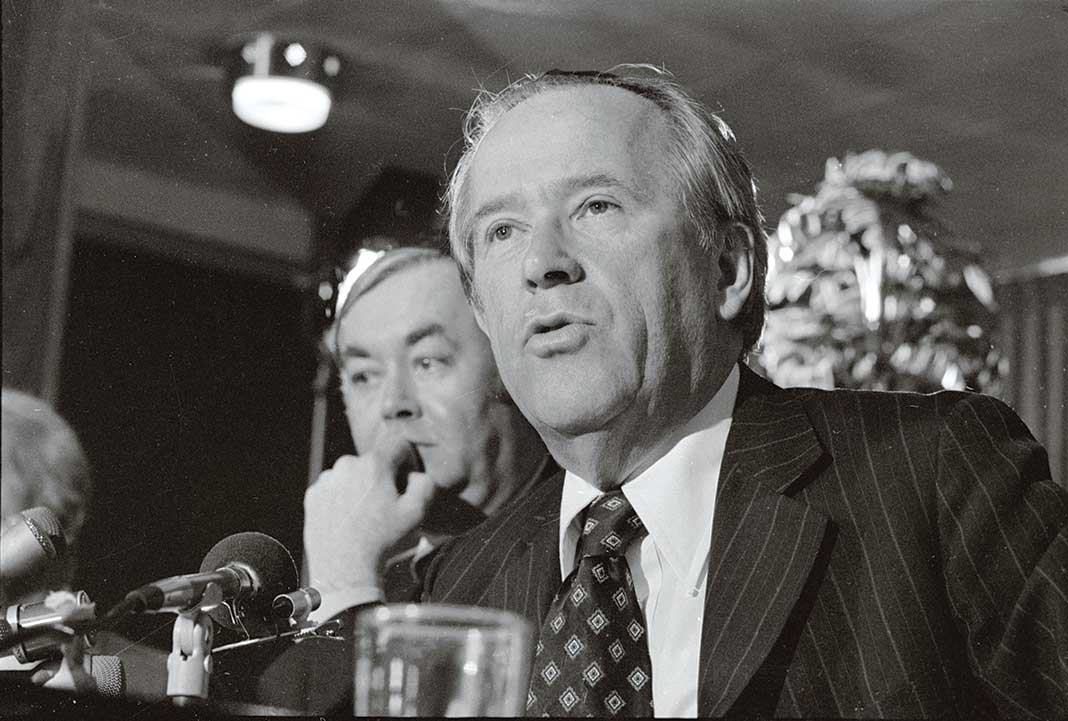
As progressive and left critics have repeatedly pointed out, this foreign policy vision failed not just because of faulty execution but because of fundamental contradictions. The sharpest critics of Bidenism have been left voices such as Richard Beck (writing in New Left Review), Adam Tooze (in the London Review of Books), and Grey Anderson (in Sidecar) and progressive critics like Nancy Okail and Matt Duss (writing together in Foreign Affairs). Despite their differing perspectives, these critics all focused on the internally contradictory nature of Bidenism: The problem with military Keynesianism is that, over time, the militarism devours the Keynesianism. As Beck observes:
The first pillar of the Biden administration’s geopolitical strategy, “a foreign policy for the middle class,” which amounts in practice to a protectionist green-military Keynesianism targeting China, has been meaningfully undercut by the consequences of pursuing the second pillar, democracies versus autocracies. The Russia–Ukraine war has exacerbated an inflationary surge around the world, including within the United States. Even with historically low levels of unemployment and strong wage growth (at least relative to recent history), Americans have been outraged by levels of inflation not seen in decades, and their views on Biden’s stewardship of the economy are particularly negative.
Beck’s analysis is compelling. While the initial cause of inflation throughout the world was the supply-chain shock triggered by Covid, the Dallas Federal Reserve noted on May 17, 2022, “Russia’s invasion of Ukraine has dealt a blow to the global economy—weakening the postpandemic recovery and aggravating already-high inflation.” Biden’s failure to pursue a negotiated settlement to the conflict meant that this exacerbation of inflation would continue.
Biden’s claims that his foreign policy is essential to the global struggle between democracy and autocracy are belied by the enduring hypocrisies of American realpolitik. In light of the mass slaughter in Gaza and the intensifying brutality of the occupation in the West Bank, it’s impossible for any rational person to take his claims about human rights seriously. Biden insists that he wants to refurbish and restore the liberal international order, but defending Israel at all costs has meant a constant attack on the very institutions that make up that order, such as the United Nations and the International Criminal Court. Not surprisingly, many in the Global South see the United States as hypocritical on international law, which has undermined Biden’s efforts to create a coalition to oppose Putin’s aggression against Ukraine.
Biden’s larger Middle Eastern policy has been one of bolstering not just the increasingly authoritarian Israeli government but also the Arab autocrats, whom the administration, following in the footsteps of the Trump administration, hoped to unite in a regional defense alliance with Israel under the compact known as the Abraham Accords (seen as a necessary move in the push toward a great-power competition with China). This policy meant that, even before the Hamas attack on October 7, Biden’s administration had sidelined the Palestinians. The journalist Alexander Ward, in his book The Internationalists, a sympathetic study of Biden’s foreign policy, quotes an administration official saying that they put “not a fucking second of effort” into pushing for a two-state solution.
The Abraham Accords meant the embrace of both the Saudi Crown Prince Mohammed bin Salman (the blood-soaked tyrant known as MBS, whom Biden had previously promised to disavow) and Benjamin Netanyahu (the dominating spirit of an increasingly authoritarian ethnocentric state). As Ward reports, “Saudi minister of state for foreign affairs Adel al-Jubeir told me that it was shameful of the United States to blame his nation for human rights abuses when Washington was responsible for atrocities around the world.”
In addition to MBS and Netanyahu, the other autocrats whom Biden bear-hugged included South Korean President Yoon Suk Yeol and Angolan President João Lourenço.
Biden has accurately described climate change as an “existential threat to all of us” and “the ultimate threat to humanity.” Yet his pursuit of great-power competition with China suggests that climate change is not really a priority. As Beck notes:
With respect to climate change…this is not a problem that can be addressed through competition among nation states. What’s required is coordination and cooperation, on a global scale, to decarbonize production as quickly as possible. Instead, the Biden Administration is wasting time trying to shore up domestic firms that are clearly inferior to their international counterparts, further delaying a decarbonization effort that is already hopelessly behind schedule.
Some of Biden’s ideological allies square this circle by stating frankly that defeating China is more important than saving the planet. David Shor, whose firm Blue Rose Research played a major role in vetting ads for the super PAC Future Forward, which had a budget of $950 million to support Kamala Harris’s campaign, tweeted in 2021: “I would much rather live in a world where we see a 4-degree rise in temperature than live in a world where China is a global hegemon.” In 2024, Matthew Yglesias, whose Substack is closely followed in the White House, tweeted: “We’re just getting our butts kicked [by China] in a way that I think is bad and way more important than climate change.” In its actions, if not in its rhetoric, the Biden White House operated according to this logic: that American global hegemony is more important than the survival of Earth as a habitable planet for humans. This is the equivalent of reacting to the iceberg hitting the Titanic by engaging in a battle to remain captain rather than helping passengers get into the lifeboats.
In the bitter aftermath of Biden’s failed presidency, the broad Democratic coalition (both liberals and the left) will have to hammer out a new policy that eschews the nostalgic fantasy of permanent American hegemony. If the greatest threat to humanity is climate change, that has to be the organizing principle for foreign policy, which means abandoning military Keynesianism for true Keynesianism: large-scale spending not to bolster military power but to avert planetary catastrophe. That new foreign policy will mean the United States takes diplomacy far more seriously than Biden did: a diplomacy based not on reviving antiquated alliances like NATO and AUKUS, but rather on working with rising powers in the Global South to actually solve real problems such as pandemics, climate-induced migration, and decarbonizing the economy.
Biden’s nostalgia destroyed what could have been a great presidency. It belongs to a past that we have to leave behind if we want to survive.


